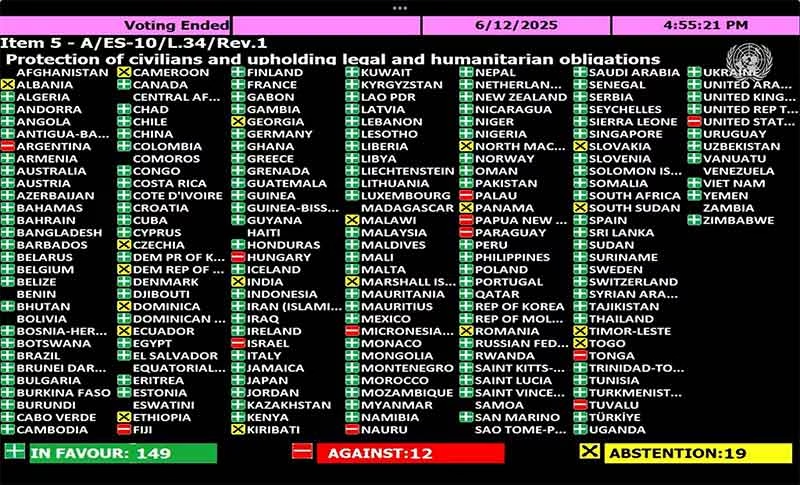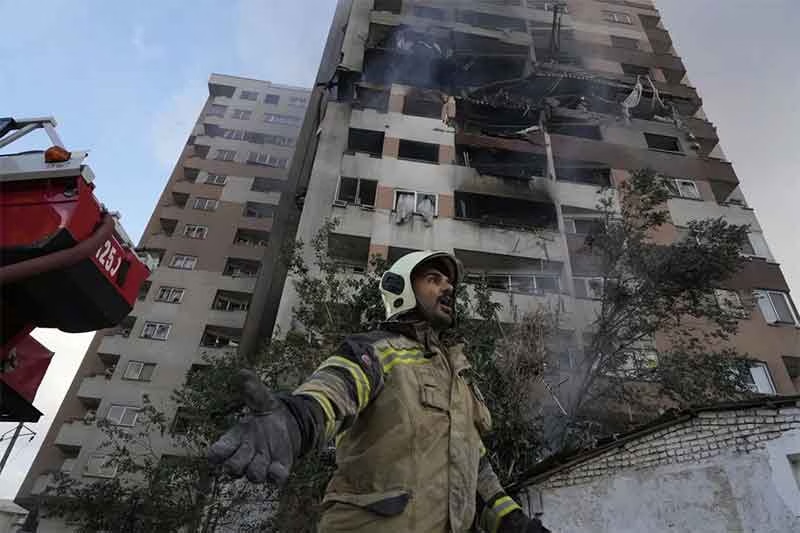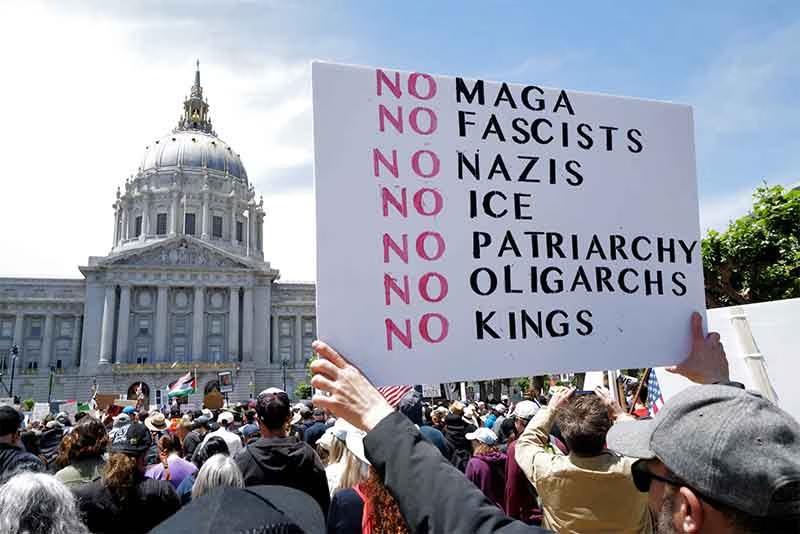
As Gaza continues to suffer under a relentless war that has claimed tens of thousands of Palestinian lives—predominantly women and children—and left millions trapped in a humanitarian nightmare with hope for peace buried beneath the rubble, the world had turned its gaze to New York, where the United Nations (UN) was scheduled to convene a high-level conference from June 17 to 20, 2025, to advance the long-stalled two-state solution to the Israeli-Palestinian conflict. But with tensions spiralling into open confrontation between Israel and Iran, the conference now stands postponed. Once again, the promise of peace is derailed by the wider geopolitics of war. Will the region ever escape the vicious cycle of conflict and occupation, or will diplomacy remain forever hostage to military escalation?
The UN conference, co-sponsored by France and Saudi Arabia, was planned to go ‘beyond reaffirming principles’ and ‘achieve concrete results’ towards a two-state solution that has for decades been the primary focus of efforts to achieve peace in the Israeli-Palestinian conflict. France wants recognition of Palestine before pursuing talks for a final resolution of the Israeli-Palestinian conflict. This would give Palestinians equal status to Israel while negotiating peace. Emmanuel Macron, the French president, has declared recognition of Palestine as ‘a moral duty and political requirement’. Many states, such as Spain, Ireland and Norway, which recognised Palestine as an independent state last year, also see the move as a way to accelerate efforts to secure a ceasefire in Israel’s war with Hamas in Gaza.
The two-state solution proposes a framework for resolving the Israeli-Palestinian conflict by establishing two states for two peoples – an independent Palestinian state alongside Israel. This framework recognises the principle of self-determination for both peoples – Israelis and Palestinians. As part of the 1993 Oslo Accords, Israeli and Palestinian leaders agreed to a two-state solution to be gradually implemented by the end of the decade. However, the plan could not gain traction due to repeated cycles of violence, deep mutual distrust, and internal rifts among Palestinian factions (e.g., Fatah vs. Hamas), continuous expansion of Israeli settlements in the West Bank and East Jerusalem, fragmenting Palestinian land, shifting geopolitical priorities of global powers, and lack of coherent and sustained negotiations. The ongoingdevastating Israeli war on Gaza following brutal Hamas attacks on Israel also presents a major setback to the cause of a two-state solution.
A renewed global push for a two-state solution came after the UN General Assembly (UNGA) adopted resolution A/RES/ES-10/24 on September 18, 2024, endorsing the July 19, 2024, advisory opinion of the International Court of Justice (ICJ) declaring the Israeli occupation to be unlawful under international law and demanding that Israel unilaterally withdraw from the Occupied Palestinian Territory (i.e., the West Bank, East Jerusalem, and Gaza) within 12 months. The GA unequivocally affirmed the Palestinian people’s right to self-determination, including their right to an independent and sovereign State, over the entirety of the land currently occupied by Israel.
It was in the same resolution the GA decided to convene an international conference, the modalities of which were subsequently set out in resolution A/RES/79/81, passed on December 3, 2024. The UNGA intends to translate existing diplomatic efforts into tangible, irreversible steps toward a two-state solution. The conference aims to reinvigorate the peace process by focusing on four key areas: recognising Palestinian statehood, normalising regional relations, reforming the Palestinian Authority, and disarming Hamas. The focus is to urgently chart an action-oriented ‘irreversible pathway towards the peaceful settlement of the question of Palestine and the implementation of the two-state solution’.
On the sidelines of this UNGA September 18, 2024, meeting, over 100 participants, including 90 States and representatives from International Organisations, also announced the formation of the Global Alliance for the Implementation of the Two-State Solution. The Global Alliance serves as a key diplomatic platform dedicated to effectively reviving the Israeli-Palestinian peace process. The subsequent meetings of the Alliance were held in Riyadh, Brussels, Oslo, Cairo, and Rabat. In the Rabat meeting of the Global Alliance held on May 20, the delegates agreed that the recognition of Palestine is essential to achieving a two-state solution. The Global Alliance is playing a crucial role in supporting the upcoming high-level international conference.
However, the path to a two-state solution is fraught with challenges. Israel’s current leadership, under Prime Minister Benjamin Netanyahu, has rejected the very idea of an independent Palestinian state. Most recently, Israel blocked a planned meeting of foreign ministers from Arab countries with Palestinian President Mahmoud Abbas in Ramallah, who supposedly wanted to discuss the possibility of establishing a Palestinian State. Israel described the proposed meeting as ‘provocative’ and aimed at ‘harming it and its security’. The delegates required Israeli consent to travel to the West Bank from Jordan.
More crucially, ahead of the UN conference, Israel approved plans to build a further 22 settlements in the West Bank, which are widely considered illegal under international law. Israeli settlements housing over 700,000 settlers in the West Bank and East Jerusalem, which have expanded by a record amount in recent times,make a viable Palestinian state nearly impossible. They are not only consuming Palestinian land but also creating a more complex situation by dividing Palestinian land and disrupting territorial continuity. They encircle Palestinian towns, control resources, and restrict movement through checkpoints and settler-only roads. Settlement expansion fuels violence, deepens mistrust, making negotiated peace and the dream of two states coexisting increasingly unattainable.
Those who support the Israeli perspective on Palestine argue that the conference represents a bad-faith attempt by the Palestinians to circumvent the Oslo Accords that obligates them to negotiate final status with Israel. They claim that Israel’s security concerns have been completely ignored both by the ICJ in its July 19, 2024, advisory opinion and by the UN in its resolutions setting this upcoming conference and its modalities. In their views any attempt to recognise the Palestinian state through this conference constitutes a reward for atrocities committed by Hamas on October 7, 2023, and would further incentivize them.
As outlined in the modalities document, the discussions at the conference must move beyond rhetoric to action-oriented commitments. It should not prove to be just another diplomatic event. This is a defining moment for the international community. The choices made in the conference will significantly influence the prospects for peace in the Middle East. It is essential that leaders demonstrate the political courage and will to support a two-state solution, which remains the only viable framework ensuring a future where both Israelis and Palestinians can coexist peacefully. The world leaders gathering in New York must give peace a chance. What is at stake today is not merely recognition of a state, but the credibility of the UN, the sanctity of international law, and the hopes for peace in the Middle East.
Subscribe to Our Newsletter
Get the latest CounterCurrents updates delivered straight to your inbox.
Aftab Alam is a professor at Aligarh Muslim University and heads its Strategic and Security Studies Programme.











































